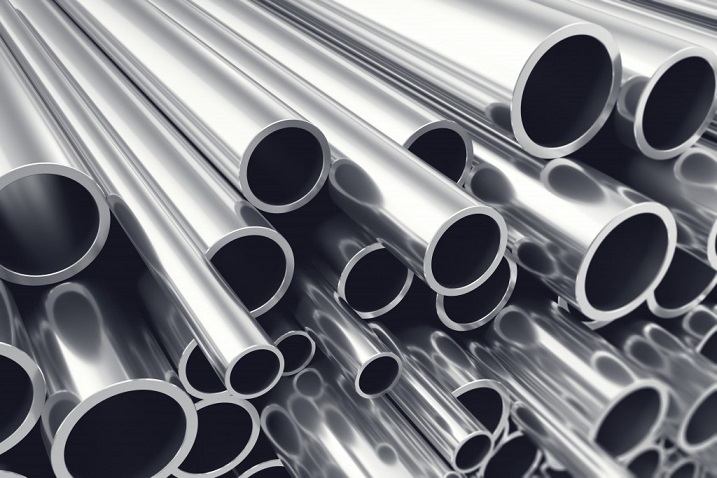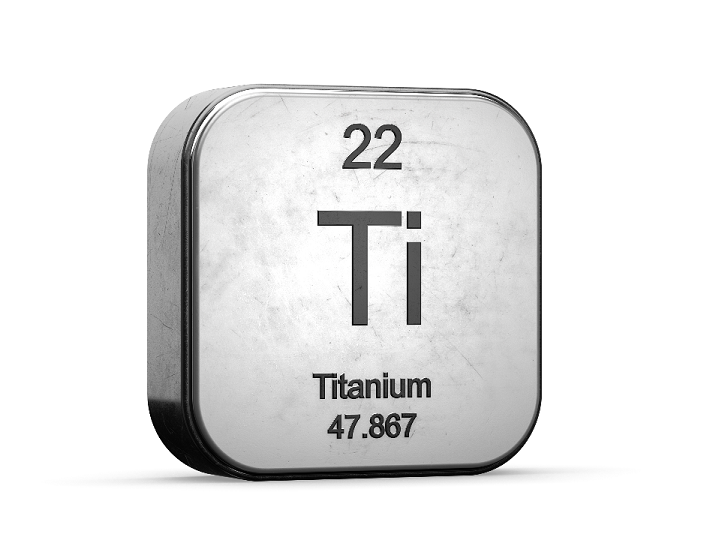Characteristics and Applications of Titanium

Characteristics and Applications of Titanium
Titanium is a silver-white metal with a melting point of 1668°C. Compared with other metals, titanium has more and better characteristics, so it is used in various scenarios. So in this article, let's take a look at the characteristics and applications of titanium.

Characteristics and Applications of Titanium
1. Low Density, High Specific Strength
The density of titanium metal is 4.51g/cm³, which is higher than aluminum but lower than steel, copper, and nickel, but its specific strength is higher than aluminum alloy and high-strength alloy steel. The high specific strength indicates that the metal is light and high-strength, so titanium is a light-weight and high-strength metal structural material.
The high specific strength of titanium makes it widely used in the development of cutting-edge technologies such as aviation, aerospace, missiles, and weapons. In addition, titanium and titanium alloys are also used in high-speed rotating generator guard rings, large steam turbine blades, high-end bicycles, golf clubs, and high jump poles.
2. Low Elastic Modulus
The elastic modulus of titanium is 106.4GMPa at room temperature, which is 57% of steel. This indicates that the ability of titanium to resist normal strain is lower than that of steel, so the use of titanium is limited and it is not suitable for rigid structural parts.
The elastic modulus of titanium decreases with increasing temperature. Titanium is used under the condition that the ambient temperature is higher than 300 ℃, the elastic modulus will be greatly reduced.
3. Low Thermal Conductivity
The heat transfer mechanism of titanium is mainly electronic heat conduction, followed by lattice heat conduction. According to actual test results, the thermal conductivity of titanium is 0.1507J, which is one-fifth of low-carbon steel, and one-fifth of copper, which is similar to stainless steel.
4. Its Tensile Strength Is Close to Its Yield Strength.
Titanium has a high yield ratio (tensile strength/yield strength), resulting in poor plastic deformation during forming. In addition, the ratio of the yield limit of titanium to the modulus of elasticity is larger, so the resilience of titanium during molding is greater.
5. Non-Magnetic, Non-Toxic
Titanium is a non-magnetic metal and will not be magnetized in a large magnetic field. Titanium pacemakers are not affected by thunderstorms and have good compatibility with human tissues and blood, so they are adopted by the medical community.
6. Strong Anti-Damping Performance
After metal titanium is subjected to mechanical vibration and electrical vibration, its vibration decay time is the longest compared with steel and copper. This performance of titanium can be used as a tuning fork, medical ultrasonic pulverizer vibrating element, and high-end acoustic speaker vibrating film.
7. Good Heat Resistance
The new titanium alloy can be used for a long time at 600°C or higher. With the development of the aviation and aerospace industries, heat-resistant titanium alloys are used in parts such as the starting discs, blades, rear fuselage, guides, and intake turns.
8. Good Low-Temperature Resistance
Low-temperature titanium alloys represented by TA7 (Ti-5Al-2.5Sn), TC4 (Ti-6Al-4V), and Ti-2.5Zr-1.5Mo, etc., whose strength increases with the decrease of temperature, but the plastic change is not large. They maintain good ductility and toughness at low temperatures and avoid the cold brittleness of metals. Therefore, they are ideal materials for cryogenic containers, storage tanks, and other equipment.
9. Strong Getter Performance
Titanium is a chemically very active metal, which can react with many elements and compounds at high temperatures. Titanium getter mainly refers to the reaction with carbon, hydrogen, nitrogen, and oxygen at high temperatures.
10. Strong Corrosion Resistance
Titanium is a very active metal. Its equilibrium potential is very low, and the thermodynamic corrosion tendency in the medium is high. But in fact, titanium is very stable in many media. For example, titanium is corrosion-resistant in oxidizing, neutral, and weak reducing media.
This is because titanium has a great affinity with oxygen. In the air or in an oxygen-containing medium, a dense, strong adhesion, and inert oxide film is formed on the surface of titanium, which protects the titanium matrix from corrosion. Even due to mechanical wear, it will quickly heal itself or regenerate again, which shows that titanium is a metal with a strong tendency to passivation.
Conclusion
Thank you for reading our article and we hope it can help you have a better understanding of the characteristics and applications of titanium. If you want to know more about titanium and titanium alloys, we would like to advise you to visit Advanced Refractory Metals (ARM) for more information.
Headquartered in Lake Forest, California, USA, Advanced Refractory Metals (ARM) is a leading manufacturer & supplier of refractory metals across the world, providing customers with high-quality refractory metals & alloys such as titanium, titanium alloys, tungsten, molybdenum, tantalum, rhenium, and zirconium at a very competitive price.
{{item.content}}
LEVE A REPLY
{{item.children[0].content}}
{{item.content}}






